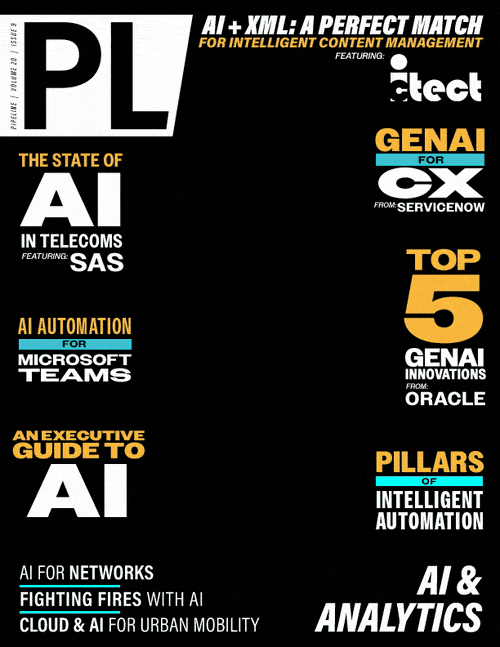Breaking Through the Noise: the True
State of AI in the Telecoms Industry
Understanding the specific needs and challenges of the telecoms industry is vital for creating relevant AI solutions. This includes knowledge of network infrastructure, customer behavior, and regulatory requirements. Over the past year, business leaders and technical minds have begun to delve into the potential ways GenAI can be used to help these organizations manage their data.
Potential Challenges
As AI becomes more pervasive, we are seeing ethical considerations become increasingly important. Telecoms professionals must be aware of the ethical implications of AI, including issues related to privacy, bias, and transparency. While AI and GenAI offer immense potential, their adoption in telecoms is not without challenges. Data privacy and security remain significant concerns, as AI systems require access to vast amounts of sensitive information. CSPs have access to a vast amount of personal sensitive privacy data, which needs to be anonymized and handled with utmost care.
Developing AI solutions that are fair, transparent, and accountable is essential for maintaining trust with customers and stakeholders with effective communication and collaboration skills being crucial for integrating AI into telecoms operations. This involves working closely with various departments, such as IT, digital marketing, and customer service, to ensure that solutions are aligned with business goals and objectives.
The Future of AI in the Industry
Looking ahead, the integration of AI with other emerging technologies, such as the Internet of Things (IoT) and edge computing, will further enhance its capabilities in telecoms. AI-driven IoT solutions can enable real-time monitoring and management of network infrastructure, enabling CSPs to develop their B2B enterprise offerings on top of their communications services, while edge computing can bring AI processing closer to the data source, reducing latency and improving performance.
In addition to technological advancements, the future of AI in telecoms will also be shaped by regulatory and policy considerations. Governments and regulatory bodies are increasingly focusing on how AI is used, ensuring that its deployment does not compromise consumer privacy or lead to unintended bias. CSPs must navigate this evolving regulatory landscape, ensuring compliance while continuing to innovate.
As AI continues to evolve, it will open new business models and revenue streams for CSPs. For example, AI-driven analytics can provide valuable insights into customer behavior, enabling CSPs to develop more targeted and profitable services. AI can also facilitate the development of new services, such as smart home solutions and advanced cybersecurity offerings, expanding the portfolio of CSPs beyond traditional communication services.
The competitive landscape of the telecoms industry is also likely to be significantly influenced by AI. Companies which can effectively leverage AI will gain a competitive advantage, offering superior services and customer experiences. This will drive increased investment in AI research and development, as companies strive to stay ahead of the curve.
We expect the rapid pace of technological advancement to necessitate continuous learning and adaptation, meaning telecoms professionals must stay updated with the latest developments in AI and related fields to leverage new opportunities and maintain a competitive edge. Collaborative efforts, such as partnerships between CSPs and AI startups, will also play a crucial role in accelerating innovation and bringing new AI solutions to the market.
The evolution of AI in telecoms is not just about technology but also about culture and mindset. Organizations need to foster a culture of innovation, encouraging experimentation and agility. This cultural shift will enable CSPs to quickly adapt to new AI technologies and applications, ensuring they remain competitive in a rapidly changing industry.
Put simply, AI and generative AI are revolutionizing the telecoms industry, offering unprecedented opportunities for innovation and efficiency. From network optimization and predictive maintenance to personalized marketing and customer engagement, AI is transforming the way CSPs operate and deliver services. However, realizing the full potential of AI requires a combination of technical expertise, domain knowledge, and ethical considerations. Understanding the distinctions between automation, AI, and GenAI, and developing the necessary skills and competencies to leverage these technologies effectively, is imperative to stay competitive and accomplish growth.



















